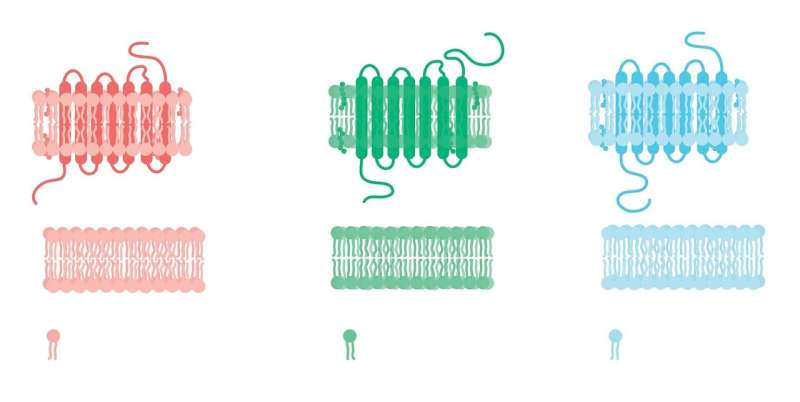Researchers explain how lipids can control immune response

When we consume fats (also called lipids) in our diet, they can be metabolized or stored to provide energy for the body. But they are also involved in regulating the genes expressed within—and the signaling between—cells. Lipids influence how our cells behave and function, which affects many processes in the body including the immune system.
Though researchers are now aware that lipids help regulate immune cell behavior, there is little understanding of how specific mechanisms and lipid molecules are involved. To address this gap in our knowledge, researchers from the School of Immunology & Microbial Sciences at King's College London looked at how lipids affect the immune system.
The paper, recently published in Nature Communications, investigated the role of lipids in controlling macrophages. These are cells of the innate immune system that patrol the body to ingest and destroy microbes, toxic chemicals, and dead/cancerous cells in a process called phagocytosis. They can also help coordinate a wider immune response by sending signals to other immune cells.
The researchers, led by Phillip Brailey and Lauren Evans under the supervision of Patricia Barral, identified a direct link between macrophages and a lipid molecular pathway. Lipid pathways trigger a chemical signal in the macrophage that influences its activation and behavior, making it more responsive to signals from the immune system.
When researchers modified the lipid pathway in macrophages, they also found that the changes affected its behavior. Specifically, the changes made macrophages less responsive to immune signals, affecting the overall immune response. This shows how immune cells can be influenced by modifications to the lipid-dependent pathway.
As well as identifying a new molecular mechanism in the immune system, the data highlights a potential new avenue for therapy. As targeting this lipid pathway changes the behavior of macrophages, this could form the basis of therapies in a wide range of diseases, including autoimmune diseases, cancers, infections, and sepsis.
"Our paper identifies novel mechanisms underpinning the activation of immune cells, by providing a direct link between lipid pathways and immune cell activation. Our data suggest that manipulation of lipid pathways could represent a therapeutic target to improve immune responses in a variety of diseases," noted Dr. Patricia Barral, Reader in the School of Immunology & Microbial Sciences.
More information: Phillip M. Brailey et al, CD1d-dependent rewiring of lipid metabolism in macrophages regulates innate immune responses, Nature Communications (2022). DOI: 10.1038/s41467-022-34532-x



















